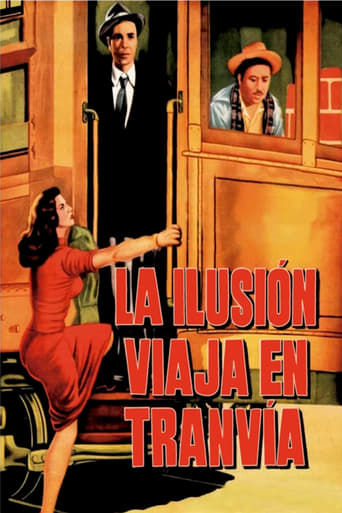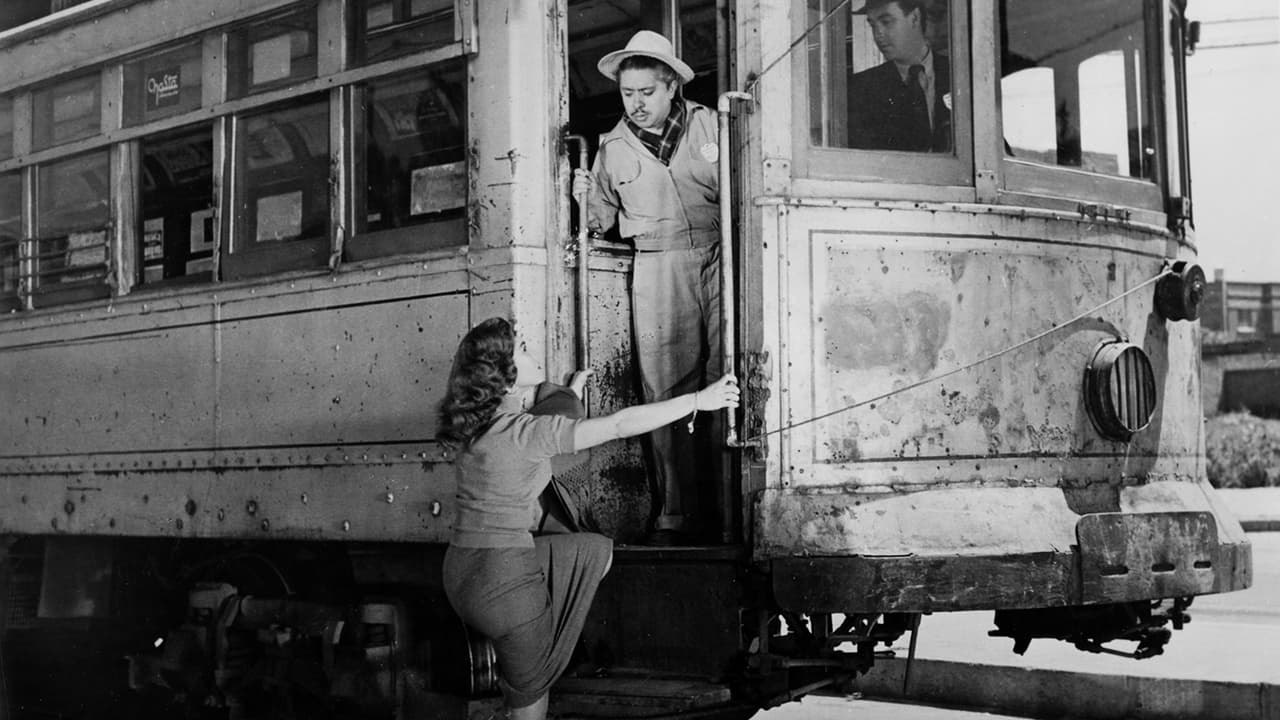Art Stukas
Another of Bunuel's Mexican films wherein he tells the picaresque tale of two bumbling streetcar workers who, after swiftly repairing a streetcar that had been deemed obsolete (and a few beers), decide to steal it for one last spin. Their adventures take them across Mexico City and in contact with a solid cross-section of the public, including slaughterhouse workers who gleefully (and surreally) hang huge slabs of meat (and heads) from the roof of the tram. Perhaps there is a metaphor or a moral here – certainly Bunuel takes the opportunity to poke fun at corporate capitalism – but any message takes a back seat (ahem) to the overall good time on offer. I particularly enjoyed the staging of Lucifer's banishment from Heaven and Adam and Eve's departure from Eden at the local festival, not unlike the amateur theatrical performances in Renoir's The Rules of the Game in their wacky but creepy surrealism.
kosmasp
You have to suspend your disbelief a bit to fully enjoy the comedic moments. It is mostly based or let's say feels like something "real", but of course strange things are happening, that are meant to be funny (they are) ...Again Mr. Bunuel shows off his skills. Great direction, nice story, with a human touch. There's even the occasional obsession theme that ran through many of his films (haven't seen all of them, so maybe it's even a running theme through all his movies). But again it's a comedy so it's more lighthearted. Not that there is no villain, but suffice to say, that it's not really about that/him! :o)
dbdumonteil
A streetcar is to be dismantled and two pals are not prepared to accept it.Bunuel's touch can be felt in the scenes dealing with religion: -The show that takes Genesis to the stage ;the grotesque actors play God,Lucifer,Adam and Eve and more ...Certainly ,the director had much fun directing these scenes -which have little to do with the main plot- -The two ladies and their Virgin Mary statuette ;while people are giving raw meat for free (even heart!)in the streetcar,they are puzzled because "normally" you've got to pay for everything.They forget that Christ gave bread and fish to His people as reported by the Gospels.Apart from these sequences,it is a simple comedy,and in Bunuel's great filmography,it is nothing by a curio.
Aw-komon
Don't think this is a light film just because it's a comedy made with Mexican actors. There are many layers here and much clever satire not only on the Mexican society of that period but (as always with Bunuel) human behavior in general. The ironic detachment of the director is never so far as to render these characters unrealistic caricatures; far from it, they're as fully real as anything in 'Los Olvidados,' except here things are examined from a much less cynical angle. Comedy is, after all, the flipside of tragedy and if comedy sells better, you only run the risk of being misunderstood by most of the audience on a very superficial level; on a deeper level even the commonest comedy fan implicitly gets the message. This film is in many ways similar in its structure and tone (and on a deeper level even in subject matter) to Alexander Payne's 'Citizen Ruth' and 'Election' or Todd Solondz's 'Welcome to the Dollhouse.' Except here, Bunuel shows less 'cruelty' than in most of his other films; here he tries his hand at an homage to certain great American comedies of the '30s and '40s which managed to use comic misadventures to veil serious messages underneath. The difference is that Bunuel consciously planned and fully intended this result whereas the Americans may have just ended up there unexpectedly and unconsciously.


 AD
AD




